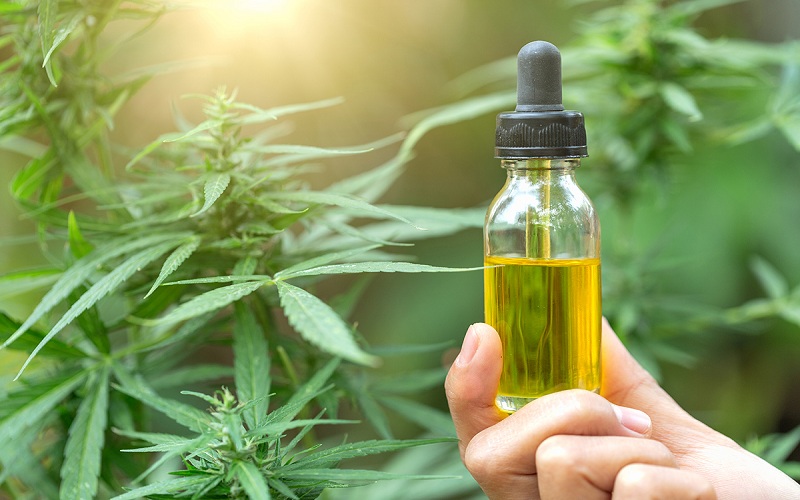
Can CBD oil products protect the cardiovascular system?
CBD is the latest health trend to hit the marketplace, with claims that it can relieve anything from chronic pain and inflammation to anxiety. But can it actually benefit the heart? Let’s find out in the current article before you buy cbd oil.
- CBD with High Blood Pressure: Any reading above 120/80 mm Hg is considered high blood pressure. When blood pressure reaches 130/90 mm Hg, the condition is known as ‘hypertension’. If not managed properly, hypertension can have major long-term implications. It may raise the risk of developing other cardiovascular illnesses such as atherosclerosis, arteriosclerosis, coronary artery disease, or stroke.
CBD oil is a popular alternative supplement which helps in the early stages of high blood pressure. However, because CBD and blood pressure medicines may interact in unexpected ways, you should always consult with your doctor before you buy cbd oil products. In a randomized study, it was seen that a single dose of CBD in hypertension patients helped to lower the resting blood pressure. An experimental study on constricted human arteries exposed to CBD extract discovered a 40% drop in arterial pressure. Subsequent research has revealed that CBD’s mechanism for lowering blood pressure is dependent on the regulation of the endocannabinoid receptors CB1 (present throughout the cardiovascular system). CB1 receptors cause the release of nitric oxide, a potent vasodilator (which expands arteries and lowers blood pressure).
- CBD and Stroke: A stroke is a disorder that affects the arteries that carry blood and nutrients to the brain. When blood arteries become blocked or ruptured, blood cannot reach certain areas of the brain. Within minutes, a lack of blood flow kills the damaged neurons.
If a stroke is not treated promptly, it can result in severe, long-term brain damage. CBD is not a stroke treatment, but it does have benefits that can lower the risk of having one or raise the likelihood of survival and successful recovery. There have been no extensive clinical trials to demonstrate the benefits of CBD in stroke patients. Several preclinical investigations, however, show that CBD could be an excellent option for the function of a supporting drug in stroke-induced ischemic damage. Other research on CBD’s advantages in stroke reveals that the majority of its effects stem from its capacity to alter the CB1 endocannabinoid receptors. These receptors have been found to produce neuroprotective effects by inhibiting neuronal hyperexcitation, promoting the phosphatidylinositol 3-Kinase-AKT pathway, and resisting hypothermia.
- CBD and atherosclerosis: Atherosclerosis is caused by the buildup of fatty deposits on artery walls. These deposits are made up of cholesterol, lipids, calcium, and fibrin. As plaque accumulates, the walls of the arteries thicken, resulting in decreased blood flow through the artery. This means that less blood, oxygen, and nutrients are circulated throughout the body.
This condition may go unnoticed for many years. If blood flow is lowered too much, the tissue supplied by the vessel may experience hypoxia (a lack of oxygen). A blockage in the big arteries that supply the heart, brain, or limbs can have serious effects. Examples include a heart attack, angina, kidney failure, and peripheral artery disease. CBD has been demonstrated to have significant preventative effects for atherosclerosis by targeting numerous of its underlying causes. There is no clinical research explicitly looking into the effects of CBD on atherosclerosis. Nonetheless, numerous studies suggest that CBD is a promising therapy option due to its effects on multiple underlying causes of the condition. For example, CBD and other endocannabinoid regulators have been demonstrated to reduce blood pressure in rats with induced hypertension. High blood pressure has been shown to dramatically increase the likelihood of developing atherosclerosis and coronary heart disease later in life. CBD has also been proven to activate PPAR, which has a number of anti-atherosclerosis properties.
Can CBD improve your heart?
Inflammation is a key reason for the onset of many ailments, including coronary heart disease, high blood pressure, and stroke, and there is some evidence that CBD has anti-inflammatory properties. Other studies have revealed that CBD can protect the heart; this has been demonstrated in rats following a heart attack and in mice with some of the cardiac damage associated with diabetes. However, because these studies are frequently based on findings from laboratories or animals rather than humans, we cannot be certain that CBD would improve the human heart.
There is continuing study for using CBD products for a range of ailments, including heart and circulatory diseases, particularly heart muscle diseases such as myocarditis and various types of cardiomyopathy. Some of this work is still being done on animals, and more research is needed before we can firmly claim that CBD can aid in this area. It’s clear that CBD has potential but we’re still at the very early stages of that research. When you buy cbd oil, there are many aspects to be taken care of. Hence, it is suggested that you buy CBD-based products from a brand that provides medical consultation regarding the potency and dosage.
So we are saying,
CBD is a highly beneficial product that has a variety of benefits for numerous organ systems. It is used to improve neurological, cardiovascular, and immunological systems, among other things. It can provide all of these benefits by interacting with the endocannabinoid system, which regulates many bodily processes. CBD, via supporting this system, can influence hormone production, brain function, inflammation, pain transfer, and other processes.


